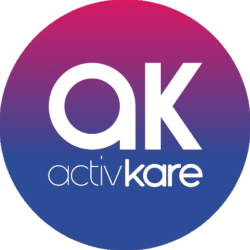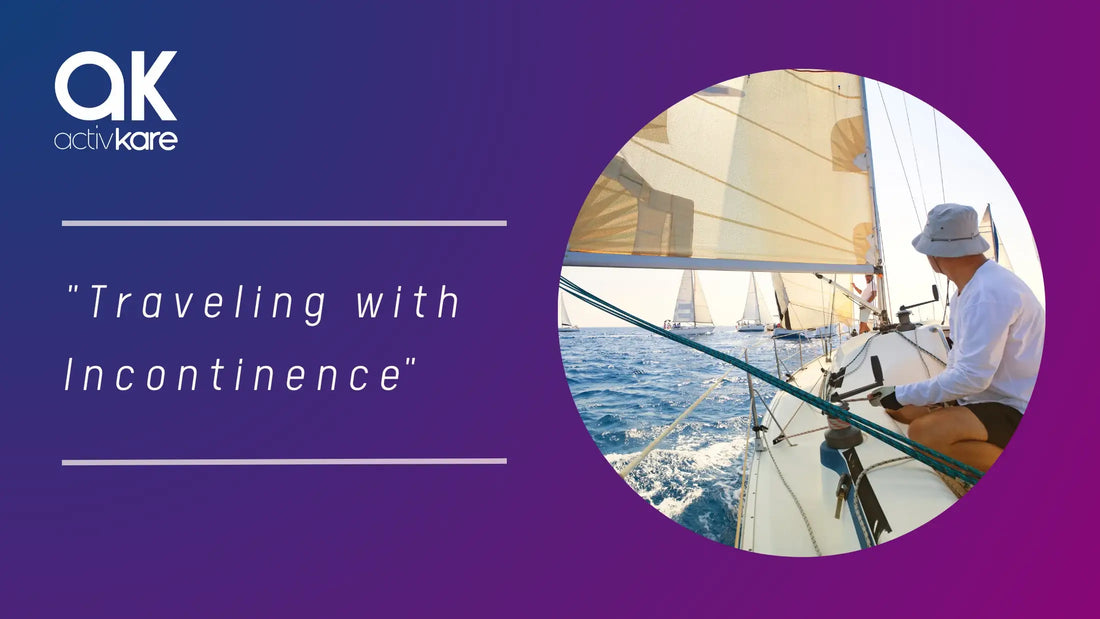Travelling with incontinence, plan for a successful trip!
Travelling in general can be stressful, let alone having to pack incontinence supplies. I travelled to Central America for a few weeks every winter for years from the time my daughters were only a few months old, and until they were past the diaper stage. Packing enough baby diapers for flights, flight delays, and shuttles was strategic, but the first year I didn’t know how close we were going to be to a store to buy more if needed. So, I packed a suitcase full of what I thought the girls might need for two weeks including possible flight delays. Unfortunately, what I didn’t take into consideration was baby dysentery (diarrhea)!
For adults the stress of planning ahead to pack enough supplies for various situations can be daunting. Whether fully incontinent, or experiencing light leakage, urge, or symptoms from an enlarged prostate, finding clean and accessible bathrooms while travelling can be difficult, especially in unfamiliar and foreign places.
Long periods of travel by any means; car, train, plane, or bus can add to the challenges for people needing frequent bathroom breaks which can increase the risk of bladder leak accidents. This fear of leakage and odor can lead to feelings of anxiety, embarrassment and discomfort which can make individuals reluctant to leave far from home or change their routine.
Some people who travel with incontinence may become dehydrated from intentionally limiting fluid intake to avoid needing a washroom or having an accident. Being dehydrated, especially in hot climates, is very dangerous because dehydration can lead to dizziness from a drop in blood pressure which can increase the risk of falls and developing urinary tract infections.
With careful advanced planning, travelling with incontinence can be comfortable and stress free. There are great apps like “Flush Toilet Finder” that actually show the best clean public bathrooms all over the world, over 200,000 of them! You can call us at ActivKare, where we offer personalized advice on the great travelling solutions for all kinds of incontinence symptoms.
It’s best to first consult your health care provider while planning your trip to get advice, to make sure you’re medically cleared for travel, and to ensure your prescriptions are up to date.
Choose your destination and accommodations wisely when needing frequent bathroom stops, find hotels, resorts, restaurants, and attractions that prioritize clean restroom facilities.
Know your rights and carry documentation to support your need for readily access to restrooms during security checks and flights. If you or a loved one has any concern about your rights regarding restroom access have a doctor’s note explaining your condition and the need for your medical supplies, whether they’re worn or carried or both.
Pack strategically, make a list of the supplies you will need for a 24-hour day. This may include reusable products like Afex, Pacey Cuff, Acticuf, and absorbable briefs and pads. Choose travel-friendly clothing, light-weight, dark colours, and loosely fitted to pack in a carry-on. Also, pack a small travel kit with your incontinence supplies, cleansing wipes, and biodegradable plastic bags for disposal or for washing garments later.
Be confident, or at the very least practice confidence building. Boost your self-confidence by reminding yourself that you’re taking control of your condition, or a loved ones, and that you’ve prepared for any potential challenges that may arise. Millions of people travel all over the world and 1 in 8 men and 1 in 3 women experience urinary incontinence, you are not alone!
Travelling concerns? Call us at 1(855)811-3733, or email info@ActivKare.com. We now offer free video consultations with our experienced team of healthcare professional personal support workers. ActivKare.com

